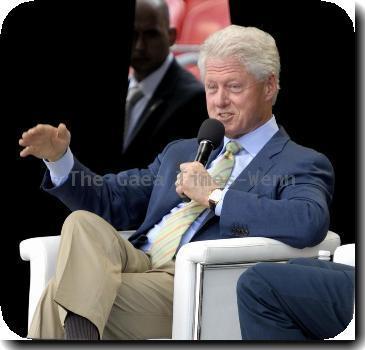Chinese vice premier Li tells Davos gathering China’s plans for long-term economic growth
By Bradley S. Klapper, APThursday, January 28, 2010
China vice premier outlines future economic plans
DAVOS, Switzerland — Laying out his strategy for long-term economic growth, a possible future leader of China said Thursday that Beijing would seek to boost domestic consumer demand to drive forward its booming economy and move away from an over-reliance on export markets.
Vice Premier Li Keqiang said China’s market of over 1 billion people would open up gradually in the coming years, with monopolies broken up and competition encouraged, benefiting the whole world. In a wide-ranging speech introducing him to many leading figures in business and politics, Li said China needed a new development model.
“China’s domestic market has huge potential,” he said at the World Economic Forum, the gathering of 2,500 business and political leaders in Davos, Switzerland.
“As we stand at a new historical juncture, we must change the old way of inefficient growth and transform the current development model that is excessively reliant on investment and export.”
On the forum’s second day of debates in the Swiss Alps, leaders also heard former U.S. President Bill Clinton’s appeal for aid to Haiti but not from Brazilian President Luiz Inacio Lula da Silva, who canceled his trip to Davos because of hypertension and was hospitalized in Brazil overnight. He left Thursday morning.
Meanwhile, British Conservative leader David Cameron endorsed the latest U.S. proposals to make banks repay some of the costs of last year’s lavish financial bailout, telling The Associated Press in an interview that as prime minister he would go toe-to-toe with British bankers to bring them in line.
Li said stronger Chinese demand would “provide huge opportunities for the whole world.” He said the government was stimulating growth through rural subsidies to enhance spending power, and noted that Beijing’s policies in 2009 ensured “steady and fast growth” of 8.7 percent while much of the world was sunk in recession.
His speech in Davos provided no radical policy shifts from Beijing, which already has been focusing on diversifying its sources of economic growth. Export markets have rebounded for China since the depths of the economic crisis a year ago, but the stronger emphasis on the domestic consumer reflects a realization that Americans, Europeans and other wealthy foreigners cannot be counted on to increase their spending on Chinese goods forever.
Economists say China keeps its currency artificially low against the dollar to promote exports, and that the economic relationship between the U.S. and China is marked by large and worrisome imbalances: the U.S. imports and borrows too much, while China exports and saves too much.
In Chinese tradition, Li said all changes would be gradual. He didn’t address the sensitive issues between China and the West of its currency and lending rates, but in a nod to Washington and Brussels acknowledged the need to enhance protection of intellectual property rights such as patents and trademarks.
China recently surpassed Germany as the world’s top exporter, but its rapid export growth and tight domestic market controls have been a constant source of agitation with the United States, Europe and other commercial powers. They argue that Beijing has competed unfairly in international trade, pumping up sales of cheap Chinese goods abroad while limiting the amount of foreign products entering China.
“We will press ahead with reforms,” Li said through a translator, “and allow the market to better play a primary role in allocation resources.”
He noted, however, that China’s imports topped $1 trillion last year, making it the second biggest importer in the world behind the United States. The government kept public debt below 3 percent of GDP, expanded health care and launched new efficient energy projects.
“China’s contribution to world economic recovery is obvious,” Li said.
But more needs to be done with the average Chinese making less money than people in about 100 other countries, he said.
Li said “we should promote more open market,” but his explanation made it clear that he didn’t see free trade as a one-way commitment. He warned against protectionism, which China has accused the rich world of practicing in its restrictions on Chinese products ranging from steel to footwear.
“In the past year or so, countries have voided opposition to trade protectionism. However, protectionist practices have kept emerging,” Li said. “It is high time for all parties to translate their solemn commitments into real actions.”
Associated Press writers Matt Moore, Edith M. Lederer and John Daniszewski contributed to this report.
Tags: Asia, Beijing, Bill Clinton, China, Davos, Davos-forum, East Asia, Europe, Greater China, Haiti, International Trade, North America, Switzerland, United States, Western Europe

